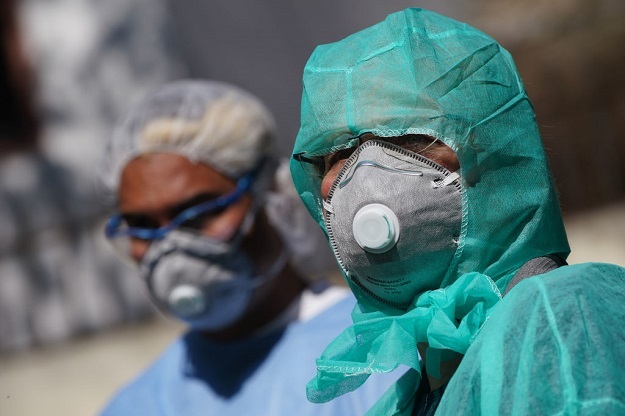
- Namibia, Uganda and the Democratic Republic of Congo have recorded the highest weekly infections yet.
- The Delta variant, first discovered in India, is now prevalent in 14 African countries.
- Less than 1% of Africa's population is vaccinated.
Africa is seeing a surge in Covid-19 cases, an increase driven by new variants of the virus and slow vaccination rates, the World Health Organisation said on Thursday.
In the last month, case numbers have continued to rise, pushing the number of cases on the continent over the five million mark since the start of the pandemic.
Last week, the continent recorded about 25 500 new cases, rising from 91 000 in the first week of June to 116 500 recorded as of Sunday, 13 June, according to WHO data.
The current rate of infection was nearly close to last July's peak and nearly half of the deadlier second wave in January this year, it said.
Uganda, the Democratic Republic of Congo and Namibia have all recorded their highest rates of weekly cases. The Delta variant, first detected in India, is now prevalent in 14 countries.
"Africa is in the midst of a full-blown third wave. The sobering trajectory of surging cases should rouse everyone into urgent action. We've seen in India and elsewhere just how quickly Covid-19 can rebound and overwhelm health systems," said WHO Africa regional director Dr Matshidiso Moeti.
The number of deaths rose by nearly 15% last week, with 2 200 recorded across 36 countries.
While the recorded total death toll on the continent - 136 030 - is still lower than other regions, the surge in infections is made more perilous by the slow rate of vaccine rollout in Africa. Nearly 12 million Africans have been vaccinated, less than 1% of the continent.
Moeti said in a statement:
Surge in southern Africa
Southern Africa has seen a surge of cases, mostly in South Africa and Namibia. In the last 24 hours, Namibia recorded more than 2 000 new Covid-19 infections, with a positivity rate of 36%.
Namibia had recorded 69 096 cases since the start of the pandemic, with 11 678 active cases, according to its health ministry.
The country of roughly 2.4 million people has recorded 1 073 deaths, but officials fear the slow vaccination rate could worsen the new wave of infections.
"We note with great concern that among those who have died due to Covid-19, only one has received the [first] dose of vaccine," the ministry said in a statement on Wednesday.
On Tuesday, President Hage Geingob, announced stricter lockdown measures in Namibia.
These include restricting movement around the capital Windhoek, where more than half the cases have been recorded, and reducing public gatherings to no more than 10 people and imposing a curfew from 22:00 to 04:00.
While Namibia has managed to curb high-death and infection rates in the last 14 months, the last month has tested the country's health system.
"Over the past four weeks, the situation has, however, taken a turn for the worst," said Geingob who also tested positive for Covid-19 in May. "We have recorded an exponential increase in the number of new infections, hospitalisations and deaths recorded daily."
- The News 24 Africa Desk is supported by the Hanns Seidel Foundation. The stories produced through the Africa Desk and the opinions and statements that may be contained herein do not reflect those of Hanns Seidel Foundation.
